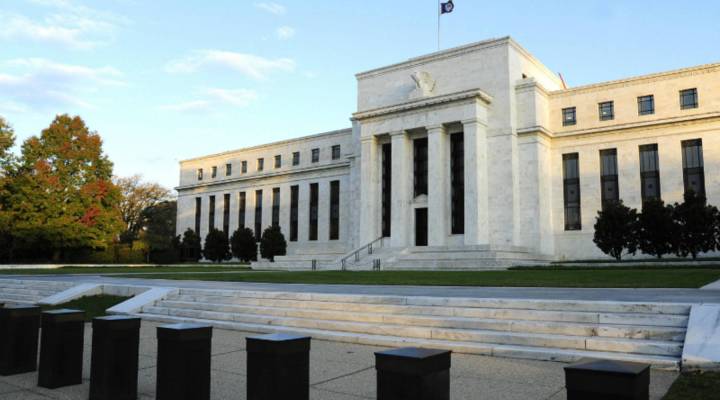
5 things you need to know about the Federal Reserve

The House GOP tax proposal aside, there was some other big economic news this week. On Thursday, President Donald Trump announced his nomination for the new chair of the Federal Reserve: Jerome Powell. The Fed affects all of our lives, but its role can be a little confusing. For this week’s 5 Things You Need to Know, Roger Lowenstein, author of “America’s Bank: The Epic Struggle to create the Federal Reserve,” explained the work of the Fed.
1. The Fed and interest rates
The Fed’s first job, the one that Americans are most familiar with, is raising or lowering interest rates. These are the rates that determine how much it costs to borrow money, to buy a car or a home mortgage or almost anything else you might want to borrow money for. The Federal Reserve Board, which has seven members, makes this decision with the help of various bank presidents. But the leader of this board is the Federal Reserve chairman. Generally, the board follows the Fed chairman.
2. What’s the Fed’s deal with inflation?
Sometimes, if the Fed lowers interest rates too much, more people are going to borrow. People who borrow are going to spend. The things that they buy, there’s going to be more demand, prices are going to go up. And what do you know, there’s inflation. So, the Fed doesn’t want that. Part of its official job is to prevent inflation, so it monitors inflation very closely.
3. What can the Fed tell us about the economy?
By congressional statute, the Fed not only has the job of making sure that the economy doesn’t grow too quickly, that is to say generate inflation, but it has the job of making sure that the economy doesn’t grow too slowly and that people lose jobs and so on. So, it monitors growth very carefully — all regions of the country, every industry. It is an enormous consumer of economic statistics and it tries to put together a picture each month of just how and where the U.S. economy is growing.
4. What about the stock market?
Officially it’s not the Fed’s job to worry about the stock market or even real estate prices or the price of gold or the price of the Yen and so on. But, as we know, the Fed pays very close attention to all of those things because as we’ve seen, when the prices of stocks or bonds or other financial assets get out of whack it can have very real and sometimes very damaging effects on the underlying economy, that say on the creation of jobs and unemployment and so on. So the Fed pays very close attention to stock prices, other asset prices and sometimes tries to talk them down or jawbone them down when it feels that there’s a bubble developing.
5. The Fed can step in when things go VERY wrong
The last responsibility of the Fed is the one that no one likes to think about, and that’s its responsibility for playing firemen, that is to say, providing rescues or to use the word that people really don’t like, bailouts, when the economy seems to really be going in the tank. Of course, we saw this in a big way in 2008 and 2009 during the mortgage meltdown when the Fed together with the U.S. Treasury bailed out a great number of American financial institutions and the Fed also provided a continuing bailout by buying all sorts of securities that it normally wouldn’t invest in to prop up the prices of those securities and provide credit to the economy. The Fed’s done that for Mexico, it’s done that for a hedge fund. In all sorts of ways, the Fed has played firemen to rescue private institutions when it felt that the U.S. economy was at stake.
Got a question about the economy? Email your “5 Things” suggestions to [email protected]
There’s a lot happening in the world. Through it all, Marketplace is here for you.
You rely on Marketplace to break down the world’s events and tell you how it affects you in a fact-based, approachable way. We rely on your financial support to keep making that possible.
Your donation today powers the independent journalism that you rely on. For just $5/month, you can help sustain Marketplace so we can keep reporting on the things that matter to you.














